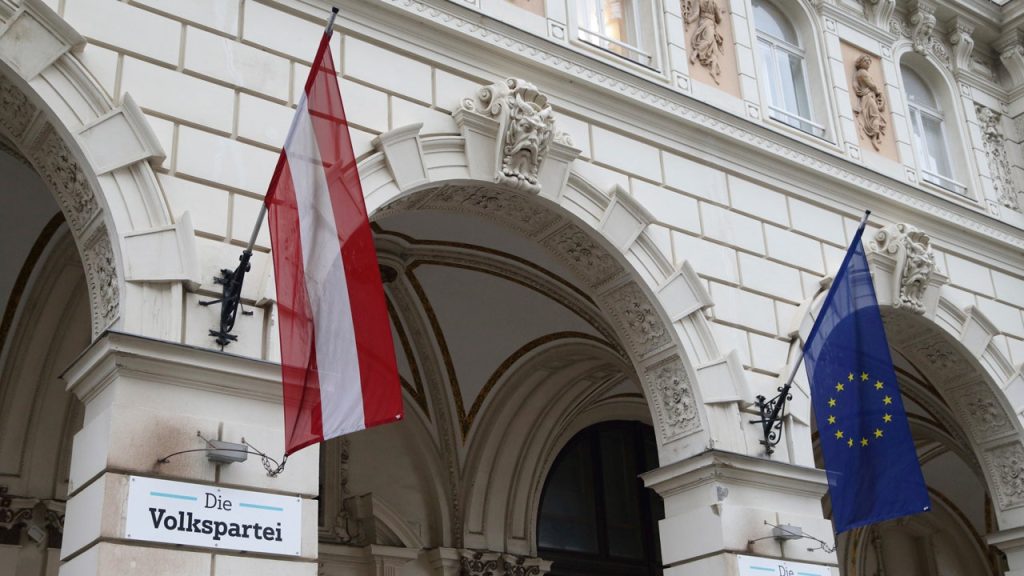The Austrian political landscape is in a state of flux following the collapse of coalition talks between the conservative Austrian People’s Party (ÖVP) and the center-left Social Democrats (SPÖ). Chancellor Karl Nehammer’s announcement of his intention to resign has triggered a series of events that could potentially bring the far-right Freedom Party (FPÖ), led by the controversial Herbert Kickl, into power. This scenario, previously considered unlikely due to widespread resistance to working with Kickl, has become increasingly plausible as voices within the ÖVP opposing a coalition with the FPÖ have reportedly quieted. President Alexander Van der Bellen, recognizing this shift, has invited Kickl for a meeting, signaling a potential pathway for the FPÖ to form a government. This move comes despite Van der Bellen’s previous decision to task Nehammer with forming a government following the autumn elections, despite the FPÖ securing the largest share of the vote.
The FPÖ’s electoral success, garnering 29.2% of the vote, contrasted sharply with the reluctance of other parties to collaborate with Kickl, a politician known for his hardline stance on immigration and his skepticism towards the European Union. Kickl has consistently criticized what he terms “elites” in Brussels, advocating for a repatriation of powers from the EU to Austria. His party’s platform, titled “Fortress Austria,” promotes stringent border controls, a suspension of asylum rights, and the “remigration of uninvited foreigners,” reflecting a nationalist and anti-immigration agenda. Furthermore, the FPÖ’s stance on international affairs, including its opposition to sanctions against Russia and its criticism of Western military aid to Ukraine, further complicates its potential role in government.
The current political impasse stems from the collapse of coalition negotiations between the ÖVP, the SPÖ, and the liberal NEOS party. NEOS’s withdrawal from the talks, citing irreconcilable differences, precipitated a final, unsuccessful attempt by the ÖVP and SPÖ to reach an agreement. The primary sticking point was the budget deficit, with the two parties unable to bridge their differences on how to address the country’s financial challenges. This failure effectively ended Nehammer’s chancellorship, although he will remain in office until a new government is formed. The ÖVP has appointed Christian Stocker as its interim leader, adding another layer of complexity to the already turbulent political situation.
Stocker, despite past criticisms of Kickl, including labeling him a “security risk,” has expressed his support for the President’s decision to meet with the FPÖ leader. He emphasized that the FPÖ, as the clear winner of the last election, should be given the opportunity to form a government. This apparent shift in Stocker’s position underscores the evolving dynamics within the ÖVP and the growing acceptance of the possibility of a coalition with the FPÖ, a prospect previously considered untenable. Stocker’s willingness to engage with Kickl, despite their past differences, highlights the pragmatic considerations driving the current political maneuvering.
The prospect of an FPÖ-led government raises concerns both domestically and internationally. Kickl’s controversial views on immigration and his party’s nationalist rhetoric have drawn criticism from various quarters. Internationally, the FPÖ’s stance on Russia and its skepticism towards the EU could strain Austria’s relationships with its European partners. The party’s 2016 friendship agreement with Putin’s United Russia party, though now claimed to be expired, further fuels anxieties about the FPÖ’s foreign policy orientation. The potential implications of an FPÖ-led government for Austria’s international standing and its relationship with the EU remain significant points of concern.
The meeting between President Van der Bellen and Herbert Kickl represents a pivotal moment in Austrian politics. While the outcome remains uncertain, the possibility of the FPÖ forming a government has become increasingly real. This development reflects the shifting political landscape in Austria, where the traditional center-right and center-left parties are struggling to find common ground. The potential ramifications of an FPÖ-led government, both domestically and internationally, are substantial and will undoubtedly shape Austria’s political future. The country now awaits the outcome of the President’s meeting with Kickl, a meeting that could determine the direction of Austrian politics for the foreseeable future.

